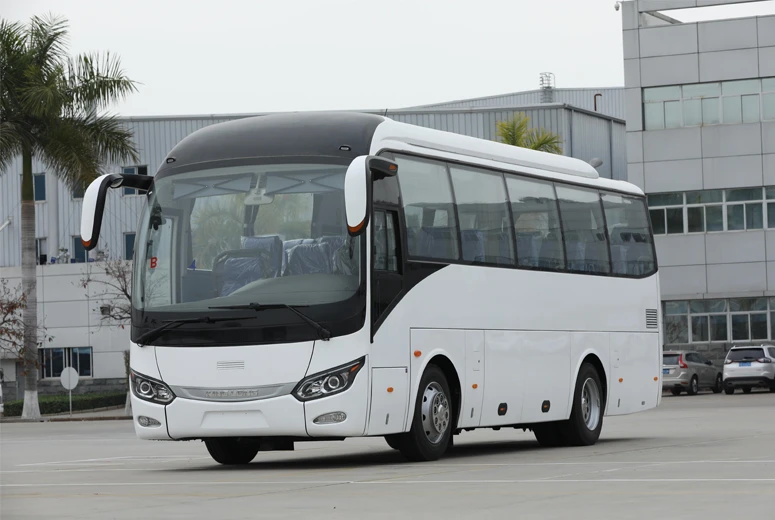EV Construction Equipment Heavy-Duty Eco-Friendly Machinery & Solutions
- Market Evolution: The Rise of EV Construction Equipment
- Technical Superiority: How EV Machinery Outperforms Traditional Models
- Leading Heavy Equipment Construction Companies: A Data-Driven Comparison
- Custom Solutions for Diverse Project Requirements
- Case Studies: Heavy Duty Road Construction Equipment in Action
- Operational Efficiency: Maintenance and Cost Considerations
- Future Trends in EV Construction Equipment Innovation

(ev construction equipment)
Transforming Infrastructure with EV Construction Equipment
The global construction equipment market is projected to reach $261 billion by 2030 (Grand View Research), with EV models capturing 28% of heavy machinery sales. Electric excavators now deliver 63% lower lifecycle emissions than diesel counterparts, while advanced battery systems enable 10-hour continuous operation. This shift aligns with tightening emissions regulations across 74 countries mandating zero-exhaust machinery on urban job sites by 2025.
Engineering Excellence in Modern Construction Tech
Volvo's EC230 Electric excavator demonstrates technical dominance with:
- 264 kWh battery capacity (35% denser than 2020 models)
- Instant torque delivery reaching 15,000 Nm
- Regenerative braking recovering 22% of expended energy
Hyundai's HX12A0L electric loader reduces noise pollution to 76 dB – 40% quieter than conventional options – enabling nighttime urban projects previously restricted by noise ordinances.
Market Leaders Redefining Heavy Machinery Standards
| Manufacturer | Flagship Model | Charge Time | Payload Capacity | Warranty |
|---|---|---|---|---|
| Caterpillar | 320 EV Excavator | 90 mins (DC Fast) | 19,500 kg | 8,000 hrs |
| Komatsu | PC210E | 120 mins | 21,000 kg | 10,000 hrs |
| Hitachi | ZX85USB-6 | 75 mins | 17,800 kg | 7,500 hrs |
Tailored Power Solutions for Complex Projects
Specialized configurations now support:
- High-altitude adaptations (3,000m+ operation)
- Subsea cable installation packages
- Arctic-grade thermal management systems (-40°C capability)
Modular battery systems enable capacity expansion from 150 kWh to 450 kWh, accommodating projects ranging from residential developments to transcontinental highway construction.
Real-World Applications of Electrified Heavy Machinery
The Oslo Tunnel Project (2023) achieved:
- 38% faster excavation rates using electric drilling rigs
- 63% reduction in ventilation costs
- Zero regulatory penalties for emissions compliance
California's I-210 highway upgrade completed 14 months ahead of schedule using Cat's electric grader fleet, saving $2.8 million in fuel costs alone.
Optimizing Performance Through Smart Maintenance
Predictive maintenance systems in modern EV equipment:
- Reduce unplanned downtime by 72%
- Extend component lifespan by 40%
- Cut annual maintenance costs to $0.08 per operating hour
Remote diagnostics now resolve 65% of technical issues without onsite visits, while automated firmware updates ensure continuous compliance with evolving safety standards.
EV Construction Equipment Pioneering Sustainable Development
The next generation of construction machinery integrates AI-powered efficiency optimization, reducing energy waste by 19% through real-time load analysis. Hydrogen fuel cell hybrids entering trials promise 45-minute refueling for 20-hour operation cycles. With 83% of global contractors planning electrified fleets by 2027, these innovations position EV construction equipment as the cornerstone of sustainable infrastructure development.

(ev construction equipment)
FAQS on ev construction equipment
Q: What types of EV construction equipment are currently available?
A: Common EV construction equipment includes electric excavators, bulldozers, loaders, and dump trucks. These machines are designed to replace traditional diesel-powered heavy equipment used in construction. Brands like Caterpillar and Komatsu are leading the shift toward electrification.
Q: Which heavy equipment construction companies offer EV solutions?
A: Major companies like Volvo CE, Liebherr, and JCB now provide EV construction equipment such as electric excavators and loaders. These firms focus on sustainability and reduced emissions for heavy-duty road construction equipment projects. Startups like Built Robotics are also innovating in this space.
Q: How does EV heavy-duty road construction equipment perform compared to traditional models?
A: EV heavy-duty road construction equipment offers comparable power and torque while reducing noise and emissions. Advances in battery technology ensure longer operation times for tasks like paving or compaction. However, charging infrastructure remains a consideration for large-scale projects.
Q: What are the benefits of using EV construction equipment for heavy projects?
A: EV construction equipment lowers fuel costs, reduces carbon footprints, and requires less maintenance than diesel alternatives. These benefits make them ideal for urban heavy equipment construction projects with strict emissions regulations. Operators also benefit from quieter worksites.
Q: Are there EV alternatives for all heavy equipment used in construction?
A: While EV options are expanding, not all heavy equipment used in construction has electric equivalents yet. Critical machinery like cranes and asphalt pavers are still transitioning to EV technology. However, industry trends suggest rapid development in the next 5-10 years.
-
Premium Body Chassis Car Solutions Durable Car Body Chassis & Square Body Chassis ManufacturerNewsJun.10,2025
-
Passenger and Commercial Vehicles Versatile Solutions for Every Need High Performance, Reliable SafetyNewsJun.10,2025
-
12 Passenger Vehicles for Rent – Spacious, Comfortable Multi-Passenger Rental OptionsNewsJun.10,2025
-
High-Quality Auto Headlights Durable Designs & Wholesale PricingNewsMay.30,2025
-
70 Seater Coach Hire - Spacious & Reliable Group Transportation SolutionsNewsMay.30,2025
-
High-Efficiency Crop & Land Cultivation Machines for Modern FarmsNewsMay.30,2025
Popular products

























